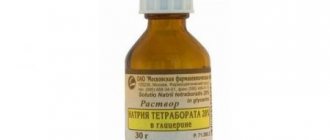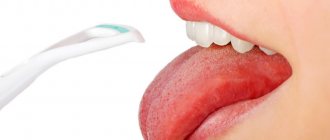Bitterness in the mouth may indicate problems with the digestive system. Severe or persistent bitterness in the mouth is a reason to consult a doctor.
From time to time you may experience an unpleasant bitter taste in your mouth. As a rule, this is due to a sudden release of bile into the gastrointestinal tract. In this case, some bile may enter the esophagus and cause a bitter sensation in the mouth.
. Often a bitter taste in the mouth is felt in the morning, since bile can enter the stomach during sleep (especially if you sleep on your left side and dinner included fatty foods).
Bile is a secretion produced by the liver and is necessary for digesting food. The bile duct carries bile from the liver to the gallbladder, which acts as a storage reservoir. During the active digestive phase, bile from the gallbladder enters the duodenum. Some substances have choleretic properties, that is, they increase the production of bile. Eating foods with choleretic properties (for example, pine nuts) can provoke a sharp increase in the flow of bile into the intestines and, as a result, the appearance of bitterness in the mouth. Some medications have the same effect - both medical preparations and traditional medicine (St. John's wort, sea buckthorn oil, etc.).
However, bitterness in the mouth should not be ignored
. Its appearance indicates that not everything is in order with the digestive system. For example, a bitter taste may appear after eating fatty (heavy) foods. Fatty foods stimulate bile secretion. Normally, the secreted bile should not enter the stomach and esophagus, but should be released exactly as much as is necessary for the digestive process in the intestines. The appearance of bitterness indicates that this is not the case. And we need to figure out what caused this. If bitterness in the mouth occurs frequently or persists for a long time, then it is better not to delay a visit to the doctor.
Causes of bitterness in the mouth
Bitterness in the mouth can be a symptom of various diseases.
Most often it is caused by diseases of the organs responsible for the production and movement of bile in the body, such as chronic cholecystitis
(inflammation of the gallbladder),
cholelithiasis
(in this case, the formation of stones interferes with the proper outflow of bile),
biliary dyskinesia
(impaired motility). Sometimes patients who previously had a bitter taste in the mouth due to cholelithiasis or inflammation of the gallbladder, and who had a cholecystectomy (surgery to remove the gallbladder), are surprised by the return of the symptom. But a bitter taste in the mouth can occur even in the absence of a gallbladder, because bile is still produced and can enter the stomach, and from it into the esophagus. If a person has had their gallbladder removed but has not changed their eating habits, the return of digestive problems and a bitter taste in the mouth is very likely
Bitterness in the mouth can occur with various disorders of the digestive system, for example with chronic gastritis
or
chronic pancreatitis
Liver diseases can lead to changes in the composition of saliva, which may also result in a bitter taste in the mouth.
Another group of reasons for the feeling of bitterness in the mouth is diseases of the oral cavity (stomatitis, inflammation of the tongue). A bitter taste can also be a reaction to dentures if they were chosen incorrectly (the individual intolerance of the material from which they are made was not taken into account).
Sometimes bitterness in the mouth is caused by other reasons: toxicosis (in pregnant women), acute poisoning, cancer.
How to keep your teeth and gums healthy during pregnancy?
When planning a pregnancy, it is very important to prepare the oral cavity and carry out a complete sanitation. However, if after pregnancy there are still teeth that require treatment, they definitely need to be cured! During pregnancy, teeth can not only be treated, but also necessary! You need to warn the dentist that you are expecting a child, then he will select a safe anesthetic with less adrenaline. It is advisable to carry out dental treatment from the second trimester of pregnancy, but if necessary, it can be done in the first if there is a risk of complications. Starting from the 20th week, you can carry out x-ray diagnostics of teeth using the latest methods of computer visiography, which are absolutely safe for both the expectant mother and the child.
If we talk about prevention, the most important aspect for maintaining a healthy oral cavity is proper nutrition (reducing carbohydrate intake, introducing calcium-rich foods into the diet), taking vitamin and mineral complexes prescribed by a gynecologist.
And, of course, proper dental care. Complete hygiene includes brushing your teeth 2 times a day in the morning and in the evening after meals. The use of additional hygiene products in the form of dental floss, interdental brushes, tongue scraper and anti-inflammatory elixirs. Please note that all hygiene products are selected for you by your dentist INDIVIDUALLY!
It is necessary to visit the dentist every 3 months for a follow-up examination and remineralization therapy. Remineralizing therapy involves artificially impregnating dental tissues with the necessary mineral components that are so necessary during pregnancy. Also, if necessary, professional oral hygiene is carried out (once every six months). It includes removing tartar and plaque using ultrasound and an Air Flow device, and thoroughly polishing the surface of the teeth using professional pastes.
All materials used are absolutely harmless to both the woman and the baby. After professional hygiene, the surface of the teeth is covered with a special remineralizing composition. Conducting remineralization therapy once every 3 months and daily proper dental care will help you maintain healthy teeth and gums during pregnancy.
Additional symptoms of bitterness in the mouth
Bitterness in the mouth may be accompanied by additional symptoms. If heaviness or pain is felt in the right side, this may indicate liver or gallbladder disease. If bitterness in the mouth is accompanied by nausea, heartburn, and belching, then the cause may be stomach diseases. If the cause is diseases of the oral cavity, then the feeling of bitterness may be accompanied by bad breath.
Why do expectant mothers so often complain of heartburn and indigestion?
There are two main causes of heartburn and indigestion during pregnancy:
Hormonal changes in the body of the expectant mother
During pregnancy, the amount of progesterone produced increases, causing muscle relaxation. Accordingly, increased production of progesterone provokes relaxation of the muscles of the lower esophageal sphincter. The sphincter is a ring of muscle that prevents stomach contents from entering the esophagus. As a result, when the sphincter muscles relax, the contents of the stomach (including gastric juice) can freely pass into the esophagus, causing irritation of its mucous membrane. The esophageal mucosa is not designed to accept large amounts of gastric acid for a long time. This is why we feel pain.
Child's height
As your baby grows, it begins to put more and more pressure on the organs of your digestive tract, stomach and intestines. This pressure can cause stomach acid to flow into the esophagus.
Most often, problems with the digestive system during pregnancy are faced by those who had similar problems before pregnancy, as well as those for whom this is not their first baby.
Heartburn and indigestion can also be caused by other reasons. For example, some foods and drinks also cause excessive stomach acid production, which can destroy the protective lining of the stomach. The protective layer is the mucous membrane, which is in direct contact with the contents of the stomach, including gastric juice. If its destruction occurs, it can lead to discomfort and unpleasant sensations.
Features of treatment
Before eliminating an unpleasant taste in the mouth, it is imperative to find out the cause of its appearance. To do this, you first need to consult with a therapist, who, after an initial examination and interview, will refer you to a gastroenterologist. Depending on the disease, treatment may involve taking medications or adjusting your diet.
Diet food
If an unpleasant taste appears, especially if it is a symptom of a digestive tract disease, the pregnant woman needs to change her diet. A few recommendations for creating a diet menu:
- exclude smoked, fatty, fried foods from the menu;
- include fresh vegetables and fruits in your diet, but do not get carried away with cabbage and legumes;
- eat more iron-containing foods - buckwheat, apples, pomegranates, seaweed and liver;
- The basis of the dishes should be lean meat and fish, which can be boiled, baked in the oven or steamed.
Equally important is the frequency and regularity of food intake. If you have gastrointestinal diseases, you need to eat often, but the portions should be small. Under no circumstances should you overeat, but you shouldn’t starve either.
Drug therapy
What medications can help with bitterness or sourness in the mouth? Medicines for pregnant women are prescribed only by a doctor, taking into account medical indications. The treatment regimen directly depends on the cause of the unpleasant taste in the mouth. The following groups of medications are most often prescribed:
- prokinetics - affect the motor function of the stomach (Domperidone, Cerucal, Motilium, Itoprid, Fractal, Osetron);
- antisecretory drugs - Rennie, Almagel, Maalox, Phosphalugel;
- preparations containing iron - Maltofer, Aktiferrin, Sorbifer, Ferlatum, Venofer;
- enzymes to improve digestion - Pancreatin, Creon, Mezim, Festal, Somilase;
- multivitamin complexes - Elevit, Vitrum, Complivit Mama, Pregnakea, Materna, Femibion.
Traditional medicine
How to get rid of acid or bitterness in the mouth using traditional methods? The most effective decoctions of medicinal herbs and vegetable juices are:
- To eliminate bitterness, it is recommended to regularly drink vegetable juices, especially carrot juice;
- Potato juice is suitable for rinsing;
- if the unpleasant taste in the mouth is associated with dental problems and inflammation of the gums, rinsing with chamomile decoction will help;
- To disinfect the oral cavity, it is recommended to rinse your mouth with a solution of soda and salt.
Treatment
If you notice any symptoms of the disease, you should not delay visiting a doctor. Self-medication is a risk not only that the disease will not go away, but that the pathology will become chronic.
Only a specialist will select the optimal treatment option for the disease for the expectant mother.
The primary task is pain relief. Most often, gels and ointments are used for this purpose for the eruption of the child’s first teeth. Such drugs are absolutely harmless for a pregnant woman, and at the same time, very effective. In addition to the analgesic effect, such products have an antiseptic effect.
The viral type of pathology is treated with the mandatory use of antiviral agents.
If the disease is caused by a fungus, then it should be treated with antifungal drugs that are suitable for the expectant mother.
What should you not eat or drink?
There is no place for harmful foods in a properly composed diet for a pregnant woman. Throughout the perinatal period, the following are blacklisted:
• fast food; • flavored snacks; • hot sauces; • smoked meats; • products containing many preservatives; • alcohol.
The expectant mother is advised to limit the consumption of sausages, confectionery products, and sweet pastries. You also need to be careful with citrus fruits, strawberries, mushrooms, and coffee. It is advisable to exclude packaged juices, bottled tea, sweet cocktails, and soda from the grocery basket.
Dieting is difficult, but necessary. This will help minimize the harmful effects on the fetus, maintain pregnancy, improve well-being, avoid weight gain, and the development of gestational complications - preeclampsia, pyelonephritis, diabetes.
Why does stomatitis develop during pregnancy?
There are quite a few reasons. The most common include:
- Poor oral care.
- Untreated carious cavities in which bacteria actively multiply, which provoke the development of stomatitis.
- Injury to the oral mucosa (cut or burn). If you accidentally bite your cheek, stomatitis can also develop.
- Eating unwashed fruits or vegetables. Seeds and nuts are also breeding grounds for bacteria.
- Problems with the gastrointestinal tract.
- An allergic rash that can appear on any part of the body, even on the cheeks or tongue.
- Contact with an already infected person.
- Reduced immunity.
Third trimester - diet correction
From the 27th week of pregnancy, the female body begins to prepare for childbirth, and the baby begins to be born. At this time, gastronomic fads give way to heartburn, constipation, shortness of breath, swelling, and rapid weight gain.
A properly composed menu will help you adjust your well-being in the 3rd trimester. What should be done:
• Reduce the amount of protein foods. A protein surplus leads to kidney dysfunction and the accumulation of uric acid. • Avoid heartburn triggers - sour foods, black coffee, fried foods. • Replace 50% of animal fats with vegetable oils. They contain essential polyunsaturated acids Omega-3 and Omega-6, which are not synthesized by the body, but are needed for the absorption of minerals and vitamins. • Limit salty foods. Salt is the cause of edema, unstable functioning of the kidneys, heart, and blood vessels. • Set a limit on sweets. Simple carbohydrates quickly turn into extra pounds, causing flatulence, dyspepsia, and skin problems. • Eat more vegetables, fruits, berries, greens. Natural sources of vitamins provide energy and strengthen the immune system - this will come in handy during childbirth. Standards for KBJU: calories - 2900-3100, proteins - 100 g, fats - 75 g, carbohydrates - 400 g.
What should be the diet for stomatitis?
As the disease develops, a pregnant woman must adjust her diet. It is best to take liquid food in the midst of illness. Various porridges and low-fat soups are suitable. It is strictly forbidden to consume sour berries and fruits, which not only corrode the affected mucous membrane, but can also provoke the formation of new ulcers. Tangerines, oranges, strawberries, etc. Fruits should be excluded for a while. They can be replaced with apples and bananas.
It is better to eat meat only in the form of minced meat, since hard pieces can injure the already inflamed mucous membrane. It is better to exclude too salty and spicy foods. You should avoid coffee and carbonated drinks.
Second trimester - needs increase
By about 14-15 weeks, the woman’s well-being returns to normal - toxicosis goes away, physical and emotional activity increases. The baby begins to produce blood cells, strengthens bone tissue, the pituitary gland begins to work, the first hair and nails appear, bone mineralization progresses, and muscles begin to contract. To meet the increased needs of the child, the mother needs to eat more. At the same time, it is not the caloric intake that needs to be increased, but the amount of nutrients. At this time, both organisms need vitamin D, calcium, and iron.
Mandatory foods in the diet:
• to provide calcium - cheese, cottage cheese, milk, almonds, sesame seeds; • sources of vitamin D - fatty fish, cod liver, eggs, butter, flaxseed, olive oil; • for the prevention of iron deficiency - beef and pork liver, cocoa, beans, cabbage, apples, blueberries, greens (spinach, parsley, mint). In the second trimester, it is important to control the amount of table salt and fluid you drink. This will help avoid surges in blood pressure and cardiac overload. Recommended values: calories - 2800-3000, proteins - 120 g, fats - 85 g, carbohydrates - 400 g.
Consequences of stomatitis for the expectant mother
If stomatitis is not treated promptly, it can lead to serious complications. For example, an increase in body temperature in a pregnant woman can negatively affect the fetus. Some experts argue that an advanced form of the disease can affect the development of stomatitis in a baby. A viral variant that is not treated in a timely manner can also negatively affect the child.
Painful sensations cause severe discomfort to the expectant mother, and the inability to chew food normally can provoke vitamin deficiency.











